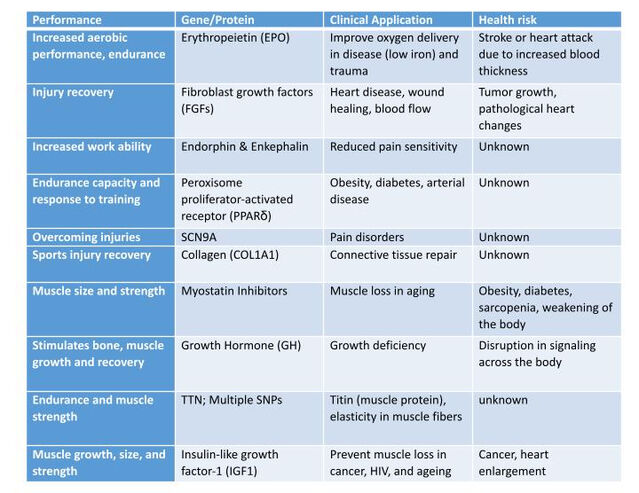Sport and Competition
Doping, Captain America, and the Science Olympics
It's harmful to enforce equity in the false pursuit of fairness.
Posted August 17, 2021 Reviewed by Ekua Hagan
Key points
- A true level playing field in sports is almost impossible to achieve. Scientific approaches could help, but they are unwieldy.
- Conceptions of ethics, equity, and equality in sport need to be reevaluated.
- Forcing (mostly female) athletes to "down dope" themselves to compete is deeply flawed and unfair.
The year 2021 brought us two popular culture events: the 80th anniversary of a fictional character grounded in the science of human enhancement in the form of Marvel Comics' Captain America, and a competition theoretically grounded in “fair” competition in the guise of the 2020 Olympic games.
At the end of the 2020 Tokyo Olympics, World Athletics President and decorated Olympian Sebastien Coe declared that the arbitrary restrictions on testosterone levels in female athletes were vindicated. He suggested that fairness prevailed in the most recent games in a way not seen previously. This concept of the appearance of fairness saw some athletes barred from competing due to inherent hormone levels and others restricted from certain events. It appeared fair but was inherently unfair and inequitable.
As argued previously, the idea of fairness in sporting competitions like the Olympics seems grounded on the idea that hard work and effort surpass everything else involved in training and performance. But the way this is addressed currently seems more likely to be part of a comic book narrative than real life.
Captain America and the Science Olympics
So what’s the alternative? I considered all kinds of interactions between nurture and nature, environment and genetics, and biological enhancement and heredity in Chasing Captain America. Based on all that thinking and pondering, here’s the only scientifically valid way to hold a fair Olympics, one that obliterates bias on gender, sex, race, or other false lines. The biggest one to frame this around in the present context is biological sex.
Traditionally, most sporting events have been men competing against men and women against women. The only reason that’s been the case is because there are different performance characteristics we tend to associate with men and women based on physical size for the most part and some physiological differences to a lesser degree. Many of the reasons that performance differences exist are largely in hormonal and regulatory mechanisms and the only reason those exist is based on genetics.
So here’s the way to have the only scientifically valid and completely fair Olympics: Do it all based on genotyping and phenotyping. There are many known genes that produce proteins that have direct effects on many aspects of athletic performance. A bunch of these are ones I included as candidates for gene editing and enhancement for Captain America and are reproduced here.

What would be needed, though, is not simply just genetic testing. That’s only the start. Next would be proteomic assays to see if the genes are actually activated and producing effective proteins to do their jobs. But also then we need metabolomic assays to see if the proteins are actually functioning properly as seen in metabolic byproducts.
A True Level Playing Field Is Based on Biology
With all this in mind, we would be able to rank everyone in a competition based on performance characteristics and relative expression of certain genes and physiological function. Then we’d do weight classes for everyone. We’d put this all together regardless of their biological sex or their gender identity. This also controls for background differences related to region of origin.
This would create a vast number of categories for any given competition, but it would be unequivocally biologically fair. At the same time, it would be an absolute nightmare to assess and administer and unfair in another way.
This approach presumes that how people function right now is the only fair way to assess capacity. What about how they got here? Including how folks developed as infants, toddlers, young adult athletes and beyond. Including their nutrition and exposure to environmental irregularities. How do we control all these critical factors?
We can’t, of course, and it would be unreasonable to imagine we could. But it’s also unreasonable to carry on the way we are currently, where things have a veneer of fairness but underneath are deeply flawed. Since we can’t guarantee outcomes, we need to be more realistic and abandon normal altogether.
The problem is that those who have greater inherent expression of various characteristics will gravitate towards sports where those are more likely to be useful. Going back to Michael Phelps, it is his physique, but for track athletes, their inherent ratios of things like testosterone to other androgens is the key. In a population of extreme athletes, it’s more likely you’ll find outliers, but they do still exist as part of a continuum. All human performance characteristics exist on a continuum and athletes that are outliers should not be punished for what is their inherent physiology.
It’s Dumb to Dope Down Nature
Returning to the words of Sebastien Coe, I argue that they are false or at least very naive. The approach taken by sports governing bodies in attempts to “level the playing field” are lazy, superficial, and not grounded in any firm understanding of human physiology. It is also beyond ironic that a sporting movement that touts as its nemesis doping to “artificially” enhance performance would actually require some athletes (mostly women) to “dope down” to artificially reduce their natural levels of certain hormones.
Where was the IOC in regulating human growth hormone levels or nutritional status in future Olympians when those folks were adolescents? Where were the regulators when some athletes took supplements that were medically indicated but which, otherwise would be banned? Why do they allow athletes with body proportions (height, wingspan) that are extremely unusual but still possible, to compete?
We have to stop doing the easy thing just because it’s the latest thing and calling it fair because it passes the eye test. It also bears thinking about the fact that these arbitrary rules largely impact, and appear targeted at, women of colour from “smaller” nations. We need to do the right thing, not just the easy thing that seems on the surface to adhere to principles of equity and fairness.
Improbable Is Not Impossible
The approach to unfair equity seems to conflate possible and probable and impossible and improbable. Isn’t that also the whole point of athletic competitions, to try and achieve the improbable? Why then punish what seems improbable but is also possible?
We’re not talking here about clearly banned substances like anabolic steroids, rather the presence of elevated intrinsic hormone levels. Of course many modern drugs work to elevate these levels and to remain masked. However in the absence of proof of artificial stimulants we cannot punish, even if we fear a “cheater” may slip through.
Silver medalist in the 200 m, Namibian sprinter Christine Mboma, was recently challenged to undergo a “gender test” because she ran too fast and has “too high” of a testosterone level. This is absurd. Would we accept similarly challenging a male athlete in gymnastics for performance advantage by being “too small?"
Following every major sporting competition is a wave of doping tests failed. We must not conflate the actions of those who willfully seek to subvert the integrity of sport by doping with those who merely exist as they are with their inherent biology.
Just like the Western legal system, it must be harder to convict an innocent than it is to allow a perpetrator to avoid detection. This is not the case currently and untold harm is being done to innocent athletes.
© E. Paul Zehr (2021)




